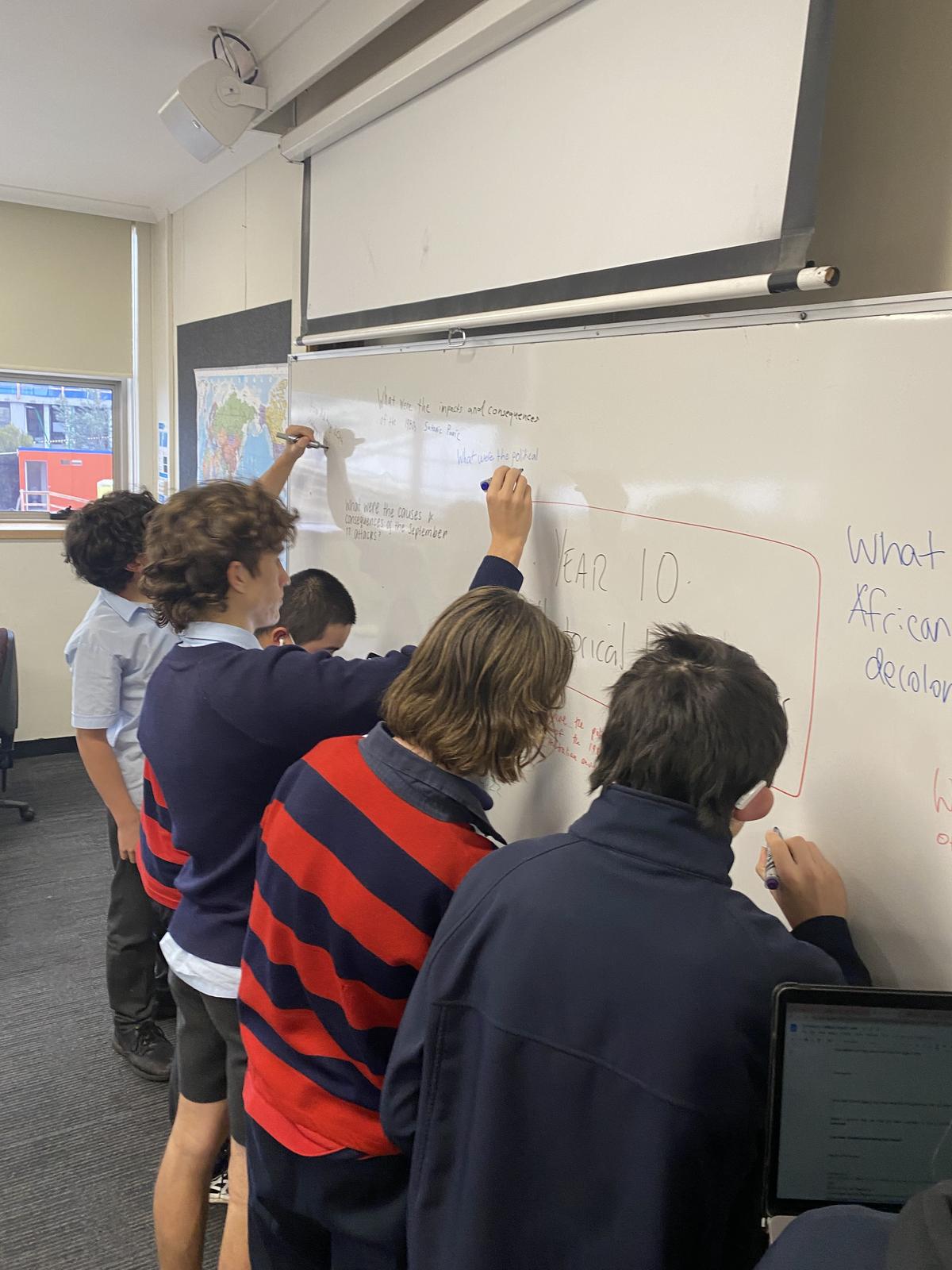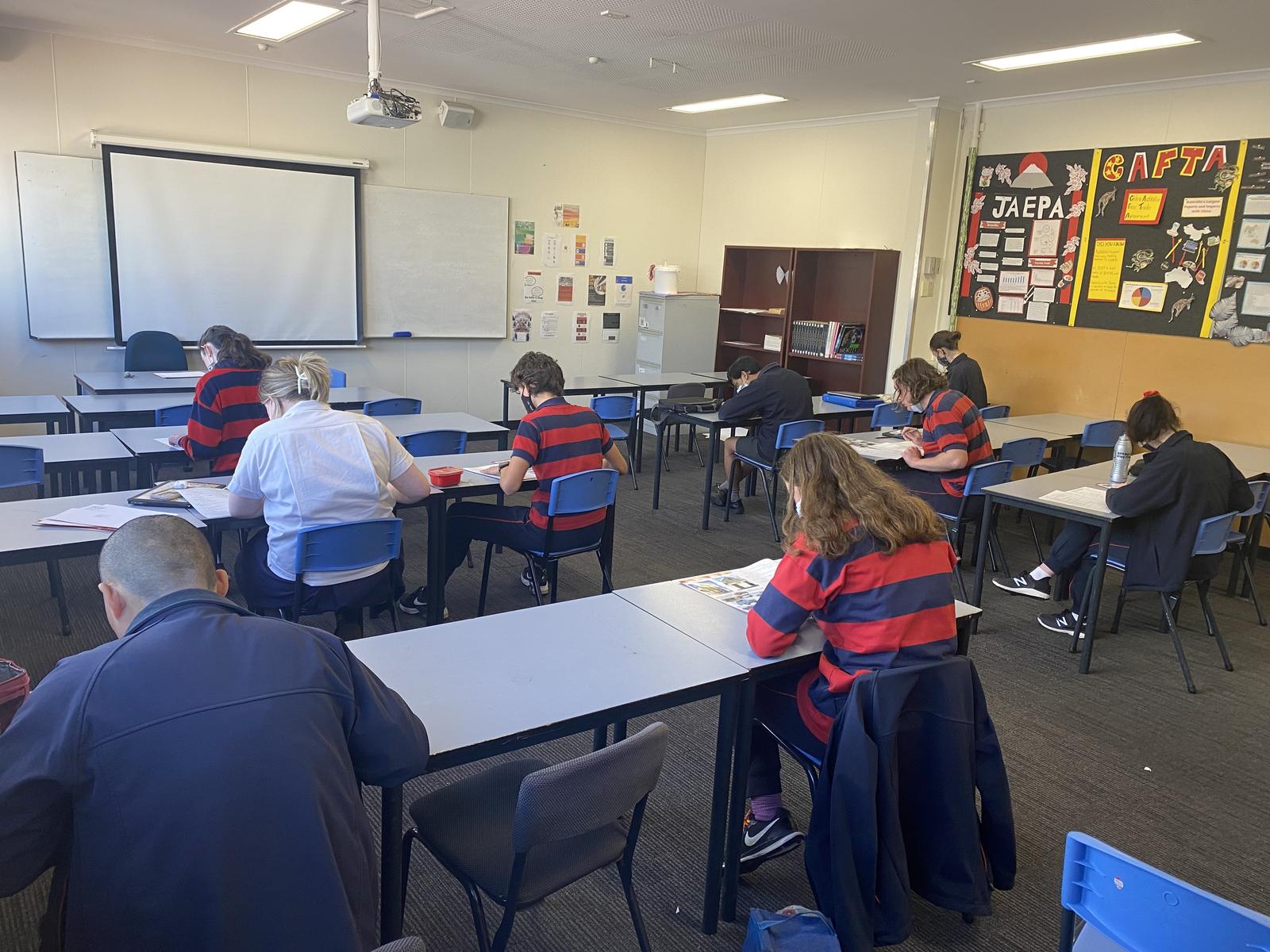Humanities (Year 9 and 10)
Over the course of Year 9 and 10 - students study four distinct subject disciplines. These are:
- History (Year 9 and 10)
- Geography (Year 9 and 10)
- Civics & Citizenship (Year 9 only)
- Economics and Business (Year 10 only)
Skills that students develop include:
- The ability to communicate ideas and information, including descriptions, explanations and evaluations.
- The ability to locate, analyse and use appropriate sources of information to support a point of view.
- The ability to question and challenge their own views and the views of others.
Key Content and Concepts:
History Year 9
- The causes and effects of European imperial expansion and the movement of peoples in the late 18th and early 19th centuries, and the different responses to colonisation and migration
- The causes and effects of European contact and extension of settlement, including their impact on the First Nations Peoples of Australia
- The causes of World War I
- The places where Australians fought and the nature of warfare during World War I
- The commemoration of World War I, including a critical analysis of the significance of the Anzac campaign.
History Year 10
Second World War
- The causes, outbreak and course of the Second World War
- The places where Australians fought, and their perspectives and experiences during the Second World War, such as the fall of Singapore, prisoners of war (POWs), the Battle of Britain and Kokoda
- The significant events and turning points of the Second World War, including the Holocaust and use of the atomic bomb
Building Modern Australia
- The causes of changes in perspectives, responses, beliefs and values on migration that have influenced Australian society since 1945
- The significant events and methods in the movement for the civil rights of First Nations Australians and the extent to which they contributed to change
- The significant events, individuals and groups in the women’s movement in Australia, and how they have changed the role and status of women
The Globalising World
- The different historical interpretations and debates during the second half of the 20th century
Geography Year 9
- The distribution and characteristics of biomes as regions with distinctive climates, soils, vegetation and productivity
- The effects on environments of human alteration of biomes to produce food, industrial materials and fibres
- Challenges to sustainable food production and food security in Australia and appropriate management strategies
- The ways people are connected to services, information and people in other places.
- The ways that places and people are interconnected with other places through trade in goods and services, at all scales
- The impact of the production and consumption of goods on places throughout the world, and the strategies to manage the sustainability in these places.
Geography Year 10
Environmental Change and Management
- Environmental functions that support all life
- Geographical concepts and methods to manage environmental change
- Different environmental worldviews and ways in which societies, organisations and governments respond to these views in shaping their management policies
- Sustainability and inter-generational equity
- First Nations Australians' approaches to custodial responsibility and environmental management
- The causes and effects of environmental change in Australia at a local, national and global scale, and strategies to manage sustainability.
Geographies of Human Wellbeing
- The different ways of measuring and mapping human wellbeing and development
- The reasons for and consequences of spatial variations in human wellbeing on a regional scale within India or another country of the Asia region
- Examine the reasons for and consequences of spatial variations in human wellbeing in Australia at the local scale, including First Nations Australians
- Investigate the role of international and national government and non-government organisation initiatives in improving human wellbeing in Australia and other countries in Asia and the Pacific.
Civics and Citizenship (Year 9)
- The legislative processes through which federal government policy is shaped, developed and implemented.
- The influence of a range of media in shaping identity and attitudes to diversity.
- The challenges to and ways of sustaining a resilient democracy and a cohesive society.
- How Australia's international obligations shape Australian law and government.
- The role of the Australian Constitution in providing the basis for Australia's federal system and the process for constitutional change through a referendum.
- The challenges to and ways of sustaining a resilient democracy and a cohesive society in Australia and/or in our region or globally.
Economics and Business (Year 10)
Key Questions
- What is an economy? What are command, mixed and market economies? What are the ways we measure economies? How do economic indicators influence economic decision making?
- What are the ways that government intervenes in the economy to improve living standards and economic performance in Australia
- What is globalisation? What are the advantages and disadvantages of globalisation?
- What are the reasons Australia trades with other nations, and the patterns of trade between Australia and Asia?
- What are the processes that businesses use to create and maintain competitive advantage, manage the workforce and improve productivity?
- What are entrepreneurs and what role does entrepreneurship play in an economy?






